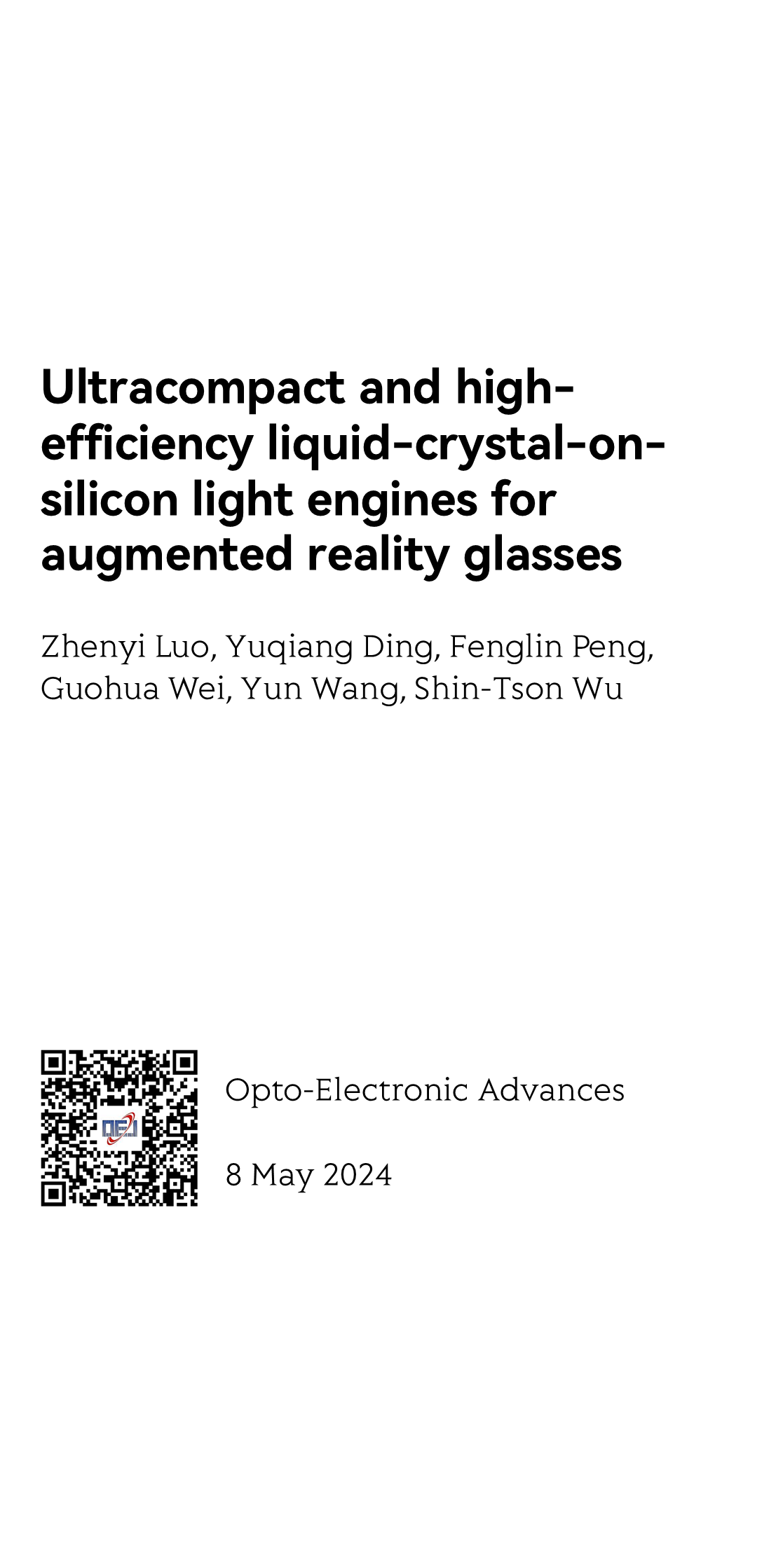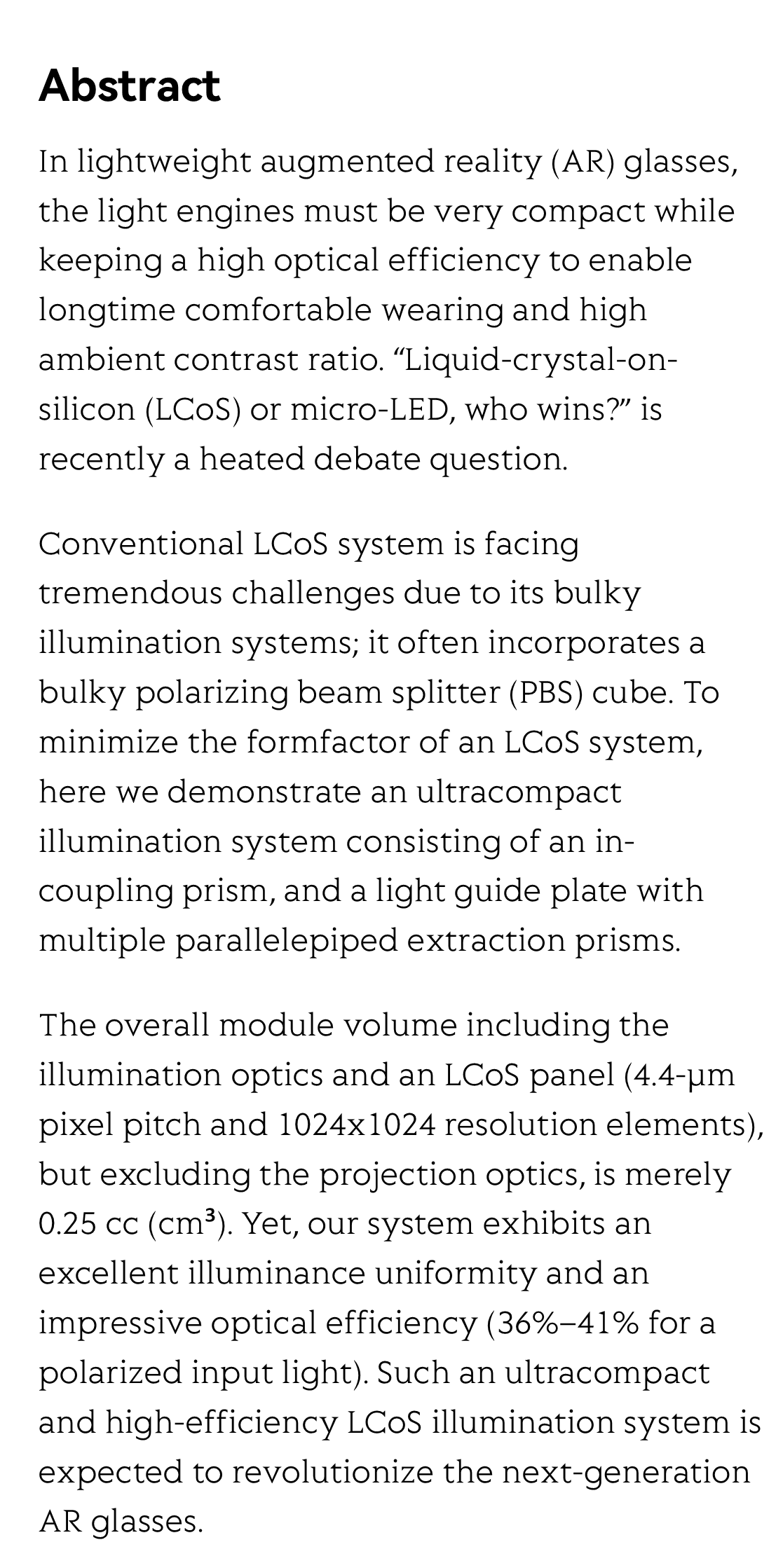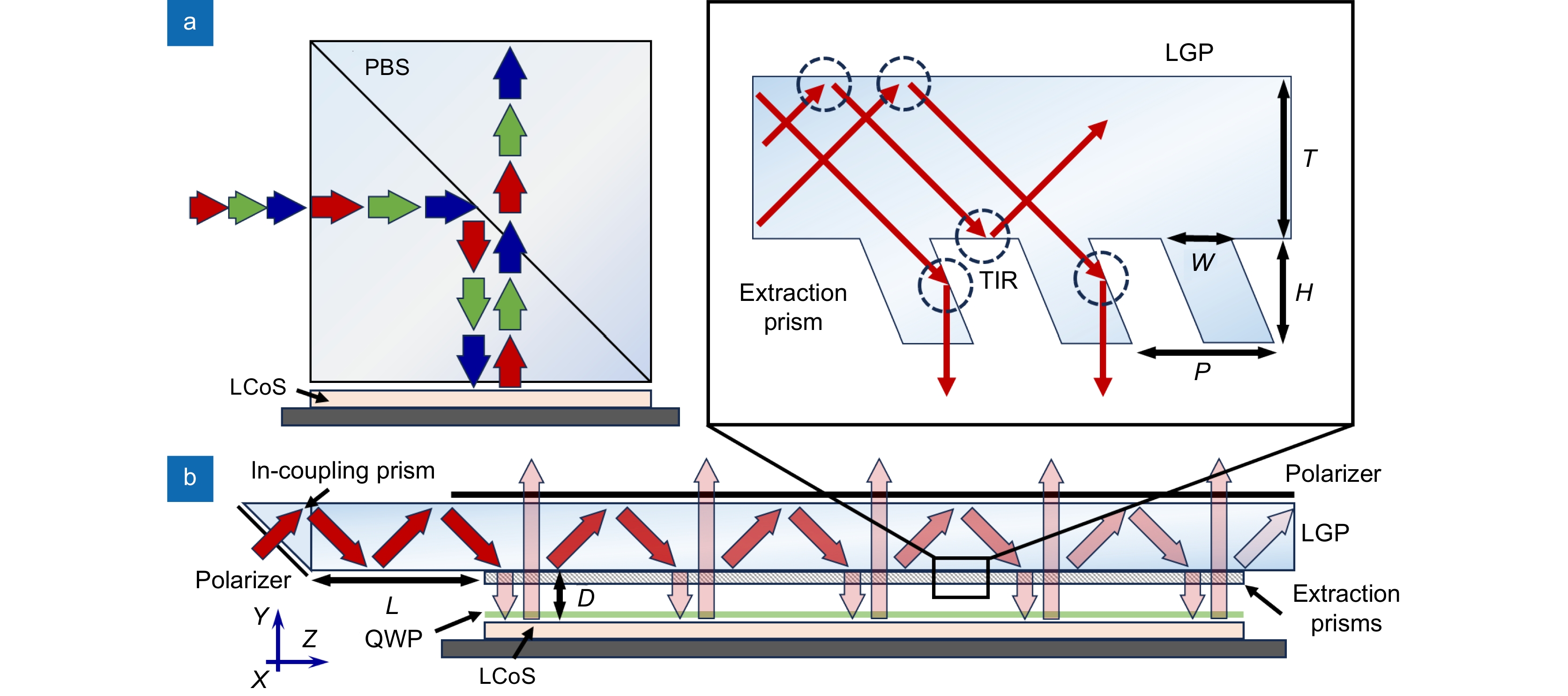(Peer-Reviewed) Ultracompact and high-efficiency liquid-crystal-on-silicon light engines for augmented reality glasses
Zhenyi Luo 罗桢埸 ¹, Yuqiang Ding 丁玉强 ¹, Fenglin Peng ², Guohua Wei ², Yun Wang ², Shin-Tson Wu 吴诗聪 ¹
¹ College of Optics and Photonics, University of Central Florida, Orlando FL 32816, USA
² Meta Reality Labs, 9845 Willows Road NE, Redmond, WA 98052, USA
Opto-Electronic Advances, 2024-05-08
Abstract
In lightweight augmented reality (AR) glasses, the light engines must be very compact while keeping a high optical efficiency to enable longtime comfortable wearing and high ambient contrast ratio. “Liquid-crystal-on-silicon (LCoS) or micro-LED, who wins?” is recently a heated debate question.
Conventional LCoS system is facing tremendous challenges due to its bulky illumination systems; it often incorporates a bulky polarizing beam splitter (PBS) cube. To minimize the formfactor of an LCoS system, here we demonstrate an ultracompact illumination system consisting of an in-coupling prism, and a light guide plate with multiple parallelepiped extraction prisms.
The overall module volume including the illumination optics and an LCoS panel (4.4-μm pixel pitch and 1024x1024 resolution elements), but excluding the projection optics, is merely 0.25 cc (cm³). Yet, our system exhibits an excellent illuminance uniformity and an impressive optical efficiency (36%–41% for a polarized input light). Such an ultracompact and high-efficiency LCoS illumination system is expected to revolutionize the next-generation AR glasses.
High-resolution tumor marker detection based on microwave photonics demodulated dual wavelength fiber laser sensor
Jie Hu, Weihao Lin, Liyang Shao, Chenlong Xue, Fang Zhao, Dongrui Xiao, Yang Ran, Yue Meng, Panpan He, Zhiguang Yu, Jinna Chen, Perry Ping Shum
Opto-Electronic Advances
2024-12-16
Ultra-high-Q photonic crystal nanobeam cavity for etchless lithium niobate on insulator (LNOI) platform
Zhi Jiang, Cizhe Fang, Xu Ran, Yu Gao, Ruiqing Wang, Jianguo Wang, Danyang Yao, Xuetao Gan, Yan Liu, Yue Hao, Genquan Han
Opto-Electronic Advances
2024-10-31





